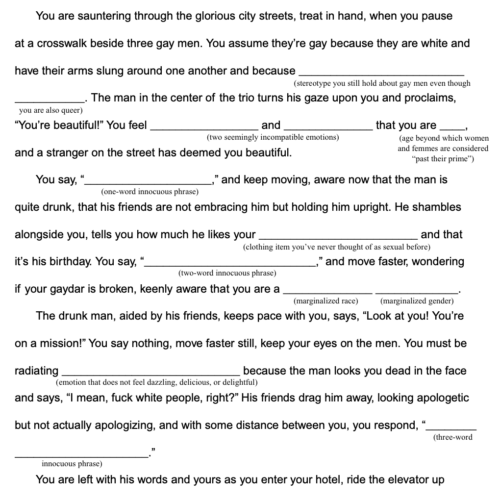Squish your toes into the creamy sheepskin rug and marvel at how they disappear—swallowed by softness.
Sunlight spills through large sash windows, turning the hairs on your forearms golden and lifting some of the intensity from the daffodil-yellow wallpaper in this unfamiliar space. You’re standing with your back to your mother’s bed, on the side furthest from the door, inhaling the melded scents of perfume and beeswax, of things carefully kept.
“Look at me when I’m speaking to you!”
She stands with arms akimbo, sharply defined by the window overlooking the yard. It’s harvest time. Below, farmhands flit to and fro like worker bees. Up here though, this side of the smooth pane, there is no one else around—just you and her, and the sepia faces in oval, silver frames, their disparaging stares reflected in the polished grain of the mahogany dressing table. Her face is stern too, that flint-eyed, thin-lipped expression she wears to show displeasure, disdain, dislike; too many of these, and you know to expect the sting of the wooden spoon.
Cross your fingers and wait stiffly for the scolding to be over.
“Selfish… told you before about running in the house… third thing you’ve broken this week.”
“But you broke the Peter Rabbit plate!”
State this with unshakeable five-year-old scrupulousness and wait for a softening of recognition. Watch her mouth press into a violet line as she steps closer. Short at five feet, she nonetheless towers over you. She starts to shout and, taken by surprise, you don’t hear the words, only feel the hail of their noise.
Back away.
Your thighs bump up against the linen-cool of the mattress and now you’re sprawling backward on the bed, flailing like an upturned beetle, elbows and knees churning the air. Scrambling up, cheeks aflame, you see something slip past behind her eyes, like a darting fish, too quick for you to catch. Then, with the thrust of a single outstretched hand, she shoves you back down.
Is this a game?
Lever yourself up to sitting; maybe you’ll find a smile, her cheek dimpling. No—she shoves you down again, a strange look on her face. A chill creeps into you that sunbeams and honeyed wallpaper can’t dispel.
Try again.
Again she pushes you back. And again. The shape of panic blows up bold and black in your mind.
She’s silent now, watching you with a cold concentration, the kind of look she gets when the dog rolls in something smelly and won’t come to heel.
The quiet sharpens between you.
Supine, your body is tight as a bow, jaw and belly clenched. Tears sting your eyes, sliding down your temples to pool in your ears. Understanding arrives in a rush, sweeping over the fear lodged like a stone in your chest: you can’t stop this, can’t stop her.
And worse, the realization, sharp as the taste of metal: she’s enjoying it.
Look at her with stunned eyes. See, for the first time, the Other in your mother. Feel the conviction of her as nurturer, protector, ready with sympathy and salve when you fall, disintegrate like torn wrappings in a game of Pass The Parcel.
This time, you stay down. A hollowness slides between you and the world you thought you lived in. You feel like a ghost, a shade of a person, in the world but not of it.
The fringe on the light shade above sways in invisible air currents.
Imagine yourself up there, swinging tassel-to-tassel like Tarzan, arcing to safety through untamed jungle, away from the girl on the bed and her enormous smallness.
“GO! Get out of my sight!”
Flee the room—knees weak with gratitude. Feel her eyes and the sepia stares, burning holes in your back.
Decades will pass, and you will never speak of this. Not all truths are given shape. Hidden in the spaces between words, theirs is a presence made of absence. So many things she claims not to remember. For you—just one:
What it’s like to feel safe.

Aisha Ashraf
Aisha Ashraf is a nomadic Irish writer striving to live lightly on the traditional lands of the Anishinabewaki, Haudenosaunee, and Mississauga First Nations, in Canada. As an immigrant, autistic female and one half of a mixed-race marriage, her writing explores the nature of being an outsider and the narrow confines of belonging. Her work has been published in River Teeth, The Huffington Post, and the UK’s Independent and Daily Telegraph newspapers.




